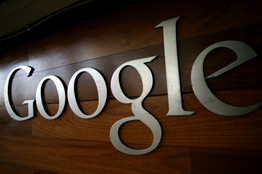By AMIR EFRATI
Google Inc.,
in a move to squeeze more cash out of its lucrative Web-search engine, is converting its free product-search service into a paid one.
Online retailers will now have to bid to display their products on Google’s Shopping site. Currently, retailers include their products for free by providing Google with certain data about the products. Google then ranks those products, such as cameras, by popularity and price.
“Google Shopping will empower businesses of all sizes to compete effectively—and it will help shoppers turn their intentions into actions lightning fast,” wrote Sameer Samat, a Google vice president, in a statement.
Eric Best, chief executive of Mercent Corp., which helps retailers sell and market products through Google, said Google’s move “represents a fundamental shift in how Google participates in the e-commerce market.”
Mr. Best estimated Google currently generates around $800 million in revenue annually from “product listing” ads that appear next to search results on the Google shopping site. That figure could increase by $1 billion after the change announced on Thursday is completed in the U.S. by this fall, he said.
![[GOOGPROD]](http://www.ripplesmith.com/wp/wp-content/plugins/rss-poster/cache/af548_MK-BU691_GOOGPR_NS_20120531181503.jpg)
A Google spokesman declined to comment on the estimate.
The move will also affect how the results from the 10-year-old Google Shopping site appear in the main search engine. Before the change, when people searched for “cameras,” for example, the top-five most popular cameras from the shopping page often would appear underneath a few search-results links. After Thursday’s announcement, those links will eventually appear above the main search results page with larger images of relevant products, suggesting the shopping site could see a bump in Web traffic.
While Google is the No. 1 Web-search engine, it pales in comparison to Amazon.com Inc.
and eBay Inc.
in shopping-related searches. In April, U.S. Internet users did about 80 million searches using Google’s shopping-search site, while eBay and Amazon handled about 900 million and 335 million searches respectively, according to research firm comScore Inc.
An Amazon spokesman declined to comment. Robert Chatwani, head of Internet Marketing for eBay, said in a statement that eBay has long paid for display ads on the Google shopping site and plans to “fully participate in the new Google Shopping offering, and continue to harness the power of Google’s ad offerings on behalf of our sellers and merchants.”
Google previously tried to upgrade the shopping site in order to catch up, but comScore data shows the service has stayed flat while its rivals have surged. Google also has been making other moves to better compete with Amazon, by joining with retailers to develop a service that would let consumers shop for goods online and receive their orders within a day for a fee, people familiar with the matter have said.
AFP/Getty Images
Google is converting its free product-search service into a paid one.
Google’s shopping announcement is one of several attempts to generate more revenue from its core search engine. Google recently introduced specialized search services such as Google Advisor, a mortgage and loan-search service; Google Hotel Finder and Google Flight Search. For those services, financial-services companies, hotels and airlines may pay to be included.
Danny Sullivan, editor of the SearchEngineLand.com blog, wrote on Thursday that the shopping change is “the first time Google will decommission a search product that previously listed companies for free.” He added that the move will “likely raise new worries that Google may further cut free listings elsewhere.”
The Google spokesman declined to comment.
Google’s move also worries some smaller online retailers.
Jeffrey Gornstein, president of Newark, N.J.-based Comfort House, a household-goods retailer, said he believed the change will make it harder for his company to compete with bigger online retailers that have deeper pockets.
He added that his company, whose products have been included for free in the shopping site for the past decade, spent $10,000 over the past year after Google requested new types of data from certain retailers that participated in the site.
Write to Amir Efrati at amir.efrati@wsj.com
Article source: http://online.wsj.com/article/SB10001424052702304821304577438614258563608.html


